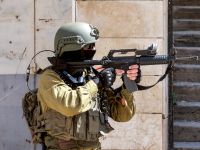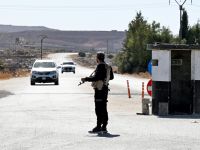UN Secretary-General Kofi Annan appointed a three-member fact-finding team led by former Finnish President Martti Ahtisaari to determine what happened during Israel's military assault on the Jenin refugee camp in the West Bank.
The other two members are Cornelio Sommaruga, former president of the International Committee of the Red Cross, and Sadako Ogata, the former UN high commissioner for refugees who is Japan's special envoy on Afghan reconstruction.
Annan said that he expects full cooperation from both Israel and the Palestinian Authority.
Ahtisaari said he hopes the team will arrive in the West Bank later this week.
Arab states have accused Israel of a massacre of civilians in the camp. The UN Security Council voted unanimously Friday to back the fact-finding mission.
Israeli Reaction
Official sources in Jerusalem said that Israel was surprised that the composition of the team was not discussed with them in advance.
"We expected that the operational aspects of the fact-finding mission would be carried out by military experts."
The sources told Haaretz, "Israel has nothing to hide. The mission will provide an opportunity to display Palestinian terror in all its cruelty. We hope that this will not be another of the UN's committees, and that this one will be an honest fact-finding mission."
Both Defense Minister Benjamin Ben-Eliezer and Foreign Minister Shimon Peres spoke to Annan Monday. Ben-Eliezer expressed his disappointment at the make-up of the team, and expressed his hope that the mission would not overstep its mandate.
Peres asked Annan to deny reports that the mission would look into events outside the refugee camp, and that the finding would have legal validity. Annan said that mission would only investigate what happened inside Jenin, but may have to interview residents currently outside the camp. He added that the findings would not be legally binding.
Background
Ahtisaari has a long career as an international diplomat. In 1999, he helped mediate the agreement between NATO and Slobodan Milosevic, then president of Yugoslavia, which ended the war in Kosovo.
As United Nations Commissioner for Namibia from 1977 to 1981, and head of the UN peacekeeping operation from 1989 to 1990, he took part in negotiations leading to that country's independence from South Africa in 1990.
Since leaving office on February 29, 2000, after a single six-year term as president of Finland, he has overseen inspections of Irish Republican Army (IRA) weapons dumps to advance peace talks with the British government.
Ahtisaari, who turns 65 in June, joined the Finnish foreign ministry in 1965 and was ambassador to Tanzania from 1973 to 1976.
In January 1987, he became UN under-secretary-general for administration and management, a position he held for four and a half years before becoming foreign minister and then president of Finland.
Ahtisaari holds a string of honours, including the Franklin D. Roosevelt Four Freedoms Award for 2000 and the J. William Fulbright Award for International Understanding of the same year.
Ogata, a 74-year-old academic and human rights expert, held the high commissioner's job for almost 10 years until she retired in December 2000.
During the 1970s and 1980s, she represented Japan on numerous UN bodies, including six sessions as her country's delegate to the General Assembly.
Sammaruga, 70, was president of the ICRC from 1987 until 1999 and continues to be an honorary member.
A former banker, he entered the Swiss foreign service in 1957 and became state secretary of external economic affairs in 1984, holding the post for two years. He is also president of the Geneva International Centre for Humanitarian Demining and chairman of J.P. Morgan (Switzerland). (Albawaba.com)
© 2002 Al Bawaba (www.albawaba.com)









